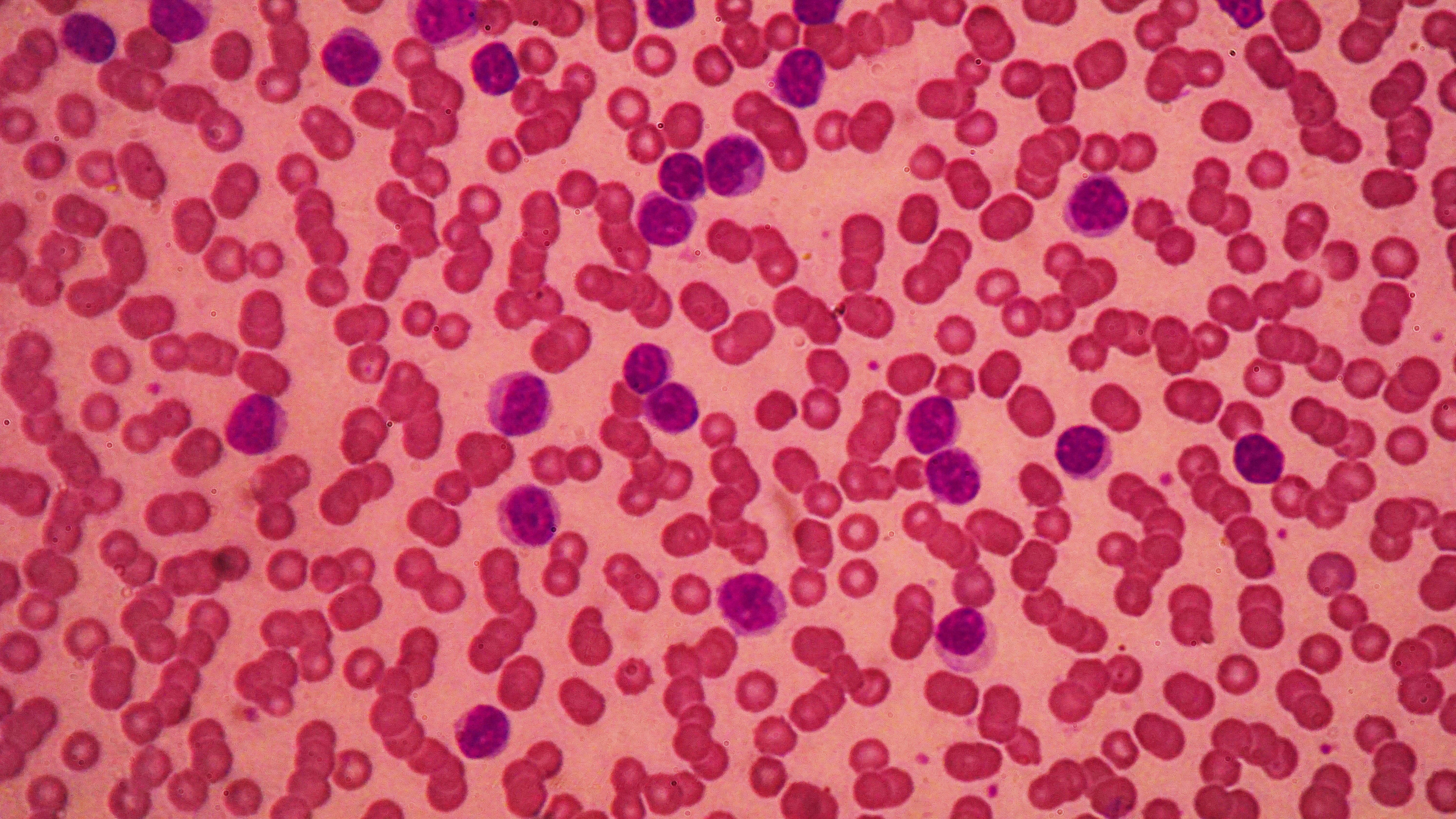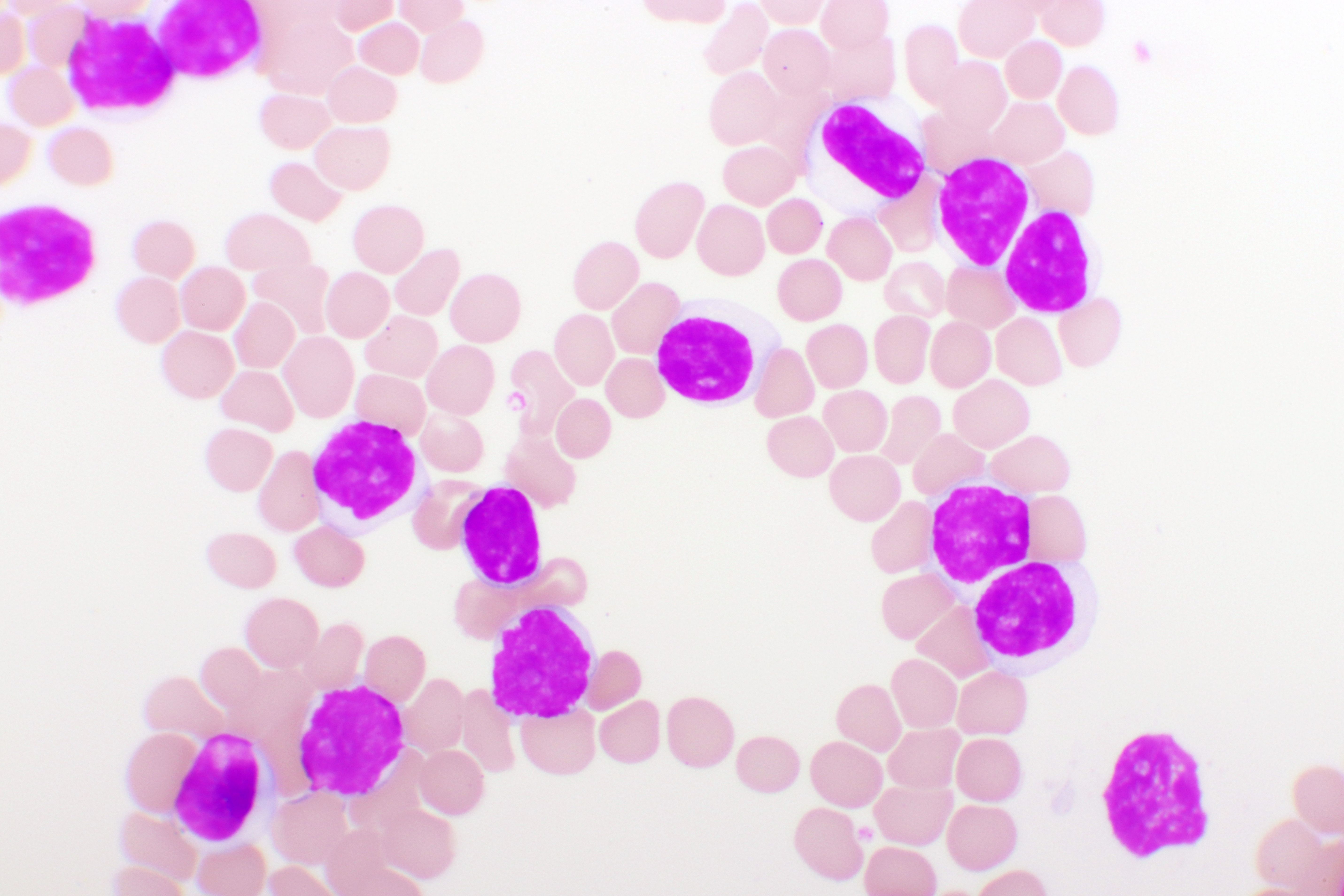Zanubrutinib Improves Survival, Response in Patients With CLL
In a matched indirect comparison of zanubrutinib vs acalabrutinib, the former showed survival and response improvements in patients with chronic lymphocytic leukemia.
Chronic lymphocytic leukemia - stock.adobe.com

Findings from a matched adjusted indirect comparison (MAIC) of zanubrutinib (Brukinsa) vs acalabrutinib (Calquence) in patients with relapsed or refractory chronic lymphocytic leukemia (CLL) demonstrated that zanubrutinib had an advantage in progression-free survival (PFS) and complete response (CR) and potentially improved overall survival.1
According to the MAIC, the investigator-assessed PFS was improved with zanubrutinib vs acalabrutinib in both the unadjusted (HR, 0.77; 95% CI, 0.55-1.07) and adjusted (HR, 0.68, 95% CI, 0.46-0.99) populations. Moreover, the odds ratio for CR was in favor of zanubrutinib compared with acalabrutinib in the unadjusted (OR, 2.88; 95% CI, 1.18-7.02) and adjusted (OR, 2.90; 95% CI, 1.13-7.43) populations. OS was potentially improved for patients treated with zanubrutinib after matching.
The results of the comparison were presented at the 28th Annual International Congress on Hematologic Malignancies in Miami, FL, from February 29 to March 3, 2024.
“The CLL landscape is evolving rapidly, and this MAIC provides timely comparative effectiveness data for physicians, and reinforces zanubrutinib role as a foundational CLL treatment via a robust evaluation of the efficacy in the ASCEND [NCT02970318] and ALPINE [NCT03734016] studies; the presented analysis not only accounts for differences in key patient characteristics, but also clarifies the impact COVID-19 may have had on study outcomes,” said Mazyar Shadman, MD, MPH, study author and Innovators Network Endowed Chair, associate professor of hematology and oncology, lymphoid malignancies and Immunotherapy, Fred Hutchinson Cancer Center and University of Washington, said in a press release.
“Head-to-head randomized clinical trials are the gold standard when it comes to evaluating the potential impact of individual treatments for patients. MAICs are intended to be hypothesis-generating, provided they are conducted with appropriate rigor to minimize potential biases,” Shadman continued.
Blood smear of chronic lymphocytic leukemia (CLL), analyze by microscope: © jarun011 - stock.adobe.com

About the ALPINE Trial
ALPINE is a phase 3, global, randomized trial comparing zanubrutinib with ibrutinib (Imbruvica) in patients with relapsed or refractory CLL or small lymphocytic lymphoma (SLL). Patients from the United States, China, New Zealand, and Australia were randomized to receive 160 mg of zanubrutinib twice daily or 420 mg of ibrutinib once daily until disease progression, death, or unacceptable toxicity.
At a median follow-up of 39 months, patients treated with zanubrutinib experienced sustained PFS improvement compared with ibrutinib (HR, 0.68; 95% CI, 0.53-0.86; P =.0011). In patients with a 17p deletion or TP53 mutation, a durable PFS benefit was also observed (HR, 0.52; 95% CI, 0.33-0.83; P =.0047).
Findings from the ALPINE study as well as the SEQUOIA study (NCT03336333) supported the January 2023 FDA approval of zanubrutinib in patients with CLL or SLL.2
REFERENCES:
1. BeiGene announces new efficacy analysis comparing Brukinsa vs acalabrutinib in relapsed or refractor chronic lymphocytic leukemia. News release. BeiGene Ltd. February 29, 2024. Accessed March 7, 2024. https://tinyurl.com/4d9xb9r3
2. FDA approves zanubrutinib for chronic lymphocytic leukemia or small lymphocytic lymphoma. News release. FDA. January 19, 2023. Accessed March 7, 2024. https://bit.ly/3D1iUjq
Selection of Next-Gen BTK in CLL Limited By Lack of Direct Comparison
February 4th 2025During a Case-Based Roundtable® event, Nakhle Saba, MD, and participants discussed the data supporting the 2 newer BTK inhibitor therapies acalabrutinib and zanubrutinib in patients with chronic lymphocytic leukemia who received 1 prior line of therapy in the second article of a 2-part series.
Read More